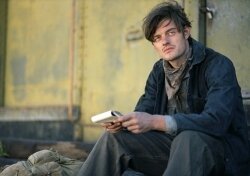Beautiful 'Road': Kerouac adaptation has charms but does it have soul?
Although Jack Kerouac's On the Road has been praised as a milestone in American literature, this film version brings into question how much of a story it really offers. Kerouac's hero, Sal Paradise, becomes transfixed by the rambling outlaw vision of a charismatic car thief, Dean Moriarty, and joins him in a series of journeys from his mother's apartment in Ozone Park, N.Y., as they crisscross the continent to Chicago, Denver, San Francisco and then back again, until it occurs to Sal “I've never been south.” They turn to Mexico, finding in its long, straight cactus-lined roads, some secret to themselves. They also find marijuana; the two may not be unrelated.
These journeys also yield forth booze, women and jazz — which contain their own secrets, but not simply through the searching for them. Along the way, Dean seeks his dead father and exudes so much charisma that the real Dean, Neal Cassady, is said to be the inspiration for the Beat Generation. Published in 1957, On the Road grew not into a movement but into a brand; Kerouac was a frequent guest on talk shows, and the Beats made the cover of Life magazine — a group of Beats seen sitting on a floor next to an LP player, wearing black turtlenecks, dark glasses and a look of intense cool. Compared to the Lost Generation and the Me Generation, the Beats were thin tea.
As a teenager, I snatched up the book in its first paperback edition and chose it above any other to display at on my desk at the News-Gazette, sometimes underlining trenchant passages...(READ FULL REVIEW)
